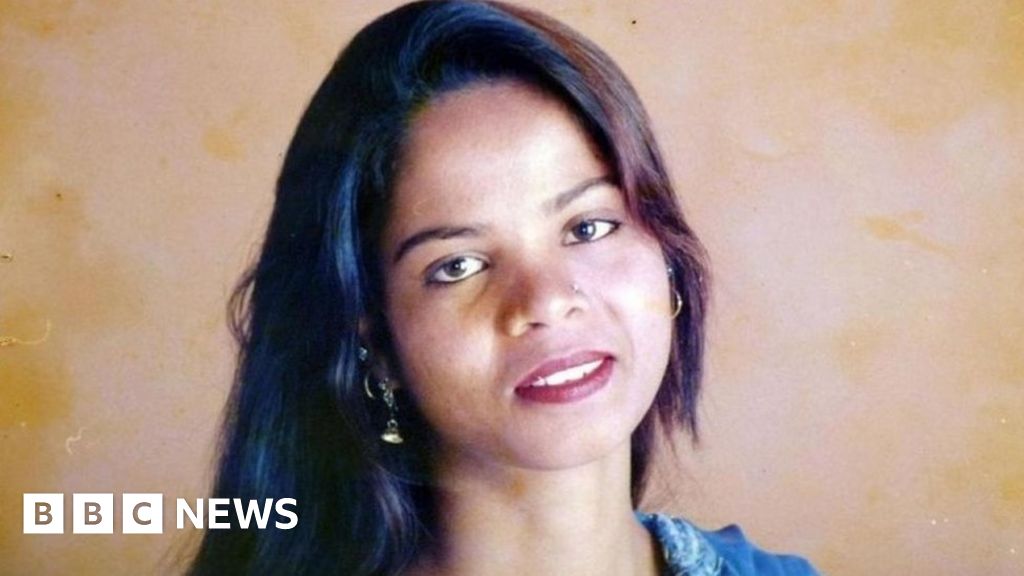
[ad_1]

Asia Bibi’s case had been hugely divisive in religiously conservative Pakistan
A Christian woman who was sentenced to death in Pakistan for blasphemy has won her appeal and been acquitted in a landmark ruling.
Asia Bibi was convicted in 2010 after being accused of insulting the Prophet Muhammad in a row with her neighbours.
She always maintained her innocence, but has spent most of the past eight years in solitary confinement.
Her case has been deeply divisive in Pakistan where there is strong support for the blasphemy laws.
There is tight security in the capital, Islamabad, amid fears of violence. Hardline religious clerics have called on their supporters to take to the streets.
The ruling was read out by Chief Justice Saqib Nisar at the Supreme Court in Islambad.
“The appeal is allowed. She has been acquitted. The judgement of high court as well as trial court is reversed. Her conviction is set aside.”
Critics say Pakistan’s strict blasphemy laws have often been used to get revenge after personal disputes, and that convictions are based on thin evidence.
Asia Bibi’s case gained added prominence when a regional governor, Salman Taseer, who had appealed for leniency for her was murdered in a public square in Islamabad by his own bodyguard.
His killer was sentenced to death but remains a hero to many.
What were the allegations against her?
The trial stems from an argument Asia Bibi – who has four children – had with a group of women in June 2009.
They were harvesting fruit in Sheikhupura, near Lahore, when a row broke out about a bucket of water. The women said that because she had drunk from a cup they could no longer use it, as her faith had made it unclean.
The woman alleged that in the row which followed, they said Asia Bibi should convert to Islam, and that she made three offensive comments about the Prophet Muhammad in response.
She was later beaten up at her home, during which her accusers say she confessed to blasphemy. She was arrested after a police investigation.
Asia Bibi admitted to exchanging “hot words” with her neighbours but has always maintained she said nothing blasphemous, and had never confessed.
Her lawyers said the prosecution case was full of contradictions.
What support has she had?
Islam is Pakistan’s national religion and underpins its legal system. Public support for the strict blasphemy laws is strong.
Hardline politicians have often backed severe punishments, partly as a way of shoring up their support base.
One of Asia Bibi’s most prominent supporters was Salman Taseer, the governor of Punjab province. He had called for her to be pardoned and for the blasphemy laws to be overhauled.
He was shot dead in broad daylight in early 2011 by his security guard, Mumtaz Qadri. Qadri was sentenced to death but remains a hero to many.
But internationally, Asia Bibi’s conviction has been widely condemned as a breach of human rights.
What happens now?
There are fears that there could be a violent response to her acquittal.
As with her previous trials and appeal large crowds have gathered outside the court in Islamabad on Wednesday demanding her conviction be upheld.
She has been offered asylum by several countries and was expected to leave the country if acquitted.
Her daughter, Eisham Ashiq, had previously told the AFP news agency that if she were released: “I will hug her and will cry meeting her and will thank God that he has got her released.”
But the family said they feared for their safety and would likely have to leave Pakistan.